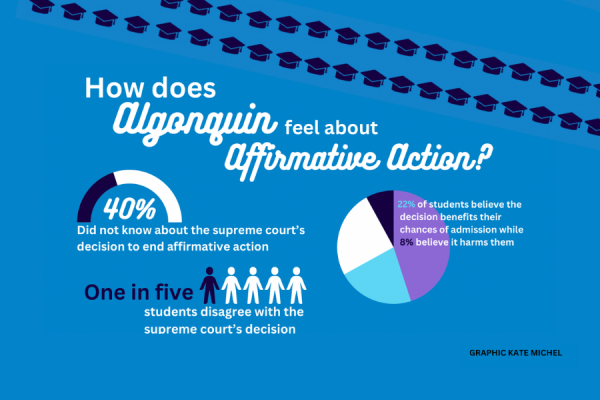Expelling class rank: proposing reform
Guidance prepares proposal for School Committee to address research, stress issues
Article continues below infographic.
The guidance department will propose reform of the current class rank system to the School Committee for possible implementation next year, citing evidence from state trends, community survey data, and observed student impact.
Although Director of Guidance Lisa Connery preferred not to go into detail about the presentation prior to her meeting with Superintendent Christine Johnson, Principal Tom Mead, and ultimately the School Committee, she provided general information regarding the recommendations.
“We are definitely going to be proposing the elimination of exact rank,” Connery said.
The school is moving in the direction of replacing the exact class rank system with a less precise or less publicized ranking system, if any at all, to relieve students from certain academic stresses.
“Our purpose of undertaking this is because what we really want students to do is to pursue their passions and their interests and create schedules and challenge themselves appropriately,” Connery said. “We just want to encourage kids to follow their passion and do what’s right for them, and not spend their time comparing themselves against all of their peers.”
“We think it’s appropriate to diminish the notoriety and the publicizing of rank, because we want the schools that are considering our students for admittance to take a holistic approach to our students,” Mead said, “to look at the whole picture, look at all the different activities, interests, and effort that our students have been making in everything.”
As the guidance department prepares for their proposal to the School Committee on April 26, they continue discussions in order to finalize decisions on the new system.
“All of this is part of their presentation that they’ll be sharing with the School Committee,” Mead said. “They’ve had dry runs of it, they’ve vetted it a few times. Most recently I sat in on a session; they invited me over to see their draft presentation. And they’ve subsequently spoken with the Student Advisory Committee (SAC).”
“We haven’t made the final decision yet,” Connery said. “We’re definitely proposing that we move away from our current practice.”
While the exact magnitude of reform remains undetermined, Mead considers absolute removal of class rank impossible.
“Class rank is always there, because it’s in the calculation of grades,” Principal Tom Mead said. “It’s the question of, ‘Do you make a big deal of it, or do you use it in a very discreet way, only when it’s going to be a help to a student in his or her application to a certain school?’”
Of the research conducted by the guidance department to substantiate their decisions for next year’s class rank proposal, a community-wide survey taken this spring revealed students, parents, and teachers in consensus that exact class rank had a negative impact on the student body. Those directly involved with the school community, however, tended towards more negative review of class rank.
“The majority of all stakeholders agree that class rank definitely causes additional stress for students. Depending on the stakeholder kind of determined the level of understanding around it,” Connery explained. “We had a lot of students who indicated that they feel that it negatively impacts the culture of the school. We had a lot of students who indicated that they do feel a lot of stress in regards to rank. A lot of the faculty indicated that they do feel that it has a negative impact on the culture, as well as generates additional stress for students. [For] parents, it was still a majority that leaned towards stress and a negative culture, it just wasn’t the clear majority that it was with the students and the faculty.”
Arguments opposing changes to the current system typically cited class rank as healthy incentive for student efforts and noted similarities to real-world competition. Though the majority of surveyed community members indicated desire for change in the current class rank system, some constituents maintained that exact rank’s benefits outweigh its downfalls.
“We did have some students, parents, and even some faculty who said that it can help to keep students motivated to perform well in their classes and continue to strive to achieve more,” Connery said. “They also said that when you go into the work world, there is a certain level of competition, and the expectation that you perform and you achieve, and so I think that some people feel as though rank encourages that and helps students to develop and prepare them for that environment.”
While Connery declined to release specific data from the survey to the Harbinger prior to finalizing decisions for the proposal, results will be shared with the community at the upcoming School Committee meeting.
The guidance department also conducted research into the class rank practices at 25 high schools in Massachusetts to review the applications of certain systems.
“What we did as part of our process in researching this was we tried to identify what were comparable schools,” Connery said. “… We looked at Boston Magazine’s top 25 schools in the state of Massachusetts… we felt like a lot of the schools that were in that listing were comparable to Algonquin, and kind of a good gauge of best practices. We looked at those schools to see what is their current practice for rank. Are they reporting rank? And if they’re not reporting an exact rank, what are they doing? Of the 25 schools that we looked at, only one of the schools continues to provide an exact rank. And several of the schools have been [not reporting rank] for quite a few years now.”
Whatever potential changes the guidance department’s proposal includes, Connery imports the primary purpose of improving students’ individual academic experiences.
“We have been finding in our work with students that a lot of students are driven more for that rank than they are for their passion and their interests in a given content area,” Connery said. “They might be looking to put another AP course on their schedule because they think that that’s going to help with their rank and their GPA, and they think that’s what the colleges are looking for, but they might be more interested in pursuing art or music. We were seeing a lot of students focused more on the number than on the quality of the experience, trying to quantify high school.”
“We want to send the message that Algonquin is a competitive school, and if you are working hard in your classes here and you’re achieving here, you’re going to be well-prepared for your future,” Connery said.
To learn more about the proposal for changes to next year’s class rank system, attend the April 26 School Committee meeting at 7:00 p.m. in the library.
A donation of $40 or more includes a subscription to the 2025-26 print issues of The Harbinger. We will mail a copy of our fall, winter, spring and graduation issues to the recipient of your choice. Your donation supports the student journalists of Algonquin Regional High School and allows our extracurricular publication to purchase equipment and cover our annual website hosting costs.

My name is Jen Fox, and I'm currently a senior and Co-Editor-in-Chief with one of my best buddies, Riya Pujari. When I'm not in the Publications room,...








